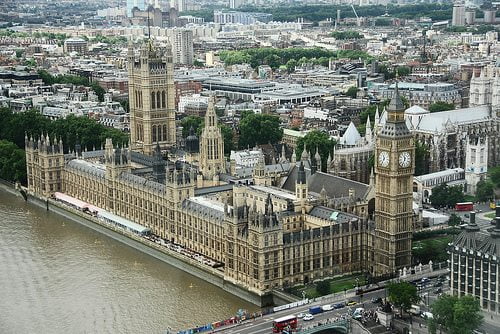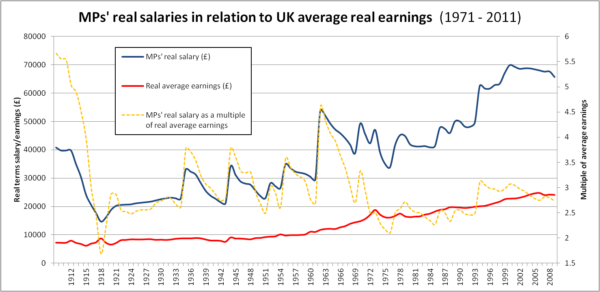

Features
Party funding and MPs’ pay: you get the democracy you pay for
On Wednesday, David Cameron and Ed Miliband traded blows on each other’s party funding structure. The Independent Parliamentary Standards Authority (Ipsa) will on Thursday say MPs’ pay should rise 9.3% to £74,000, after the next election. Who would want to be a politician? We need to grow up if we want an effective democracy.
All political parties have dysfunctional funding arrangements. A party funded by a few unions isn’t good for democracy. A party funded by a few hedge funds isn’t good for democracy. Corporations, wealthy individuals, vested interests, overseas residents and criminals all contributing to party funding distorts our democracy creating an unrepresentative debate in the Mother of Parliaments.
In 2010, the total reported national campaign expenditure by all political parties across the UK on the general election was £31.5m or less than £1 for every one of the 29.7m votes cast. Not bad when you consider the US presidential election cost £3.7 billion or £29 for every vote cast. As of 2011, there were 46m electors, meaning the whole election shebang cost less than 68p per elector.
Political parties raised £40m in political funding in 2012, £31m from donations and £9m from public funds. Dividing that between the electors means a whopping cost of 87p per elector.
It costs about £1 billion to run the Houses of Parliament, Scottish Parliament, Welsh and Northern Ireland assemblies. The cost of our entire legislative system is roughly £22 a year per elector or 42p per week – roughly a fifth of the cost of a coffee or burger.
On those figures, wouldn’t state funding of political parties be the best solution to get big unions and big money out of politics? People work for whoever pays them. Our elected representatives should be paid for and working for the public – no one else.
As for MPs pay, we originally introduced a payment structure for MPs in 1911 to ensure those without another source of income, mainly the working class, could stand for parliament.
It seems perverse to beat up politicians for a pay rise, when it was an independent body that made the recommendation. Lest we forget, this body was set up in response to the expenses scandal and isn’t well-loved in the corridors of Westminster.
MPs are currently paid £66,396 and this will rise to £67,060 in April 2014, with another 1% rise in 2015. The proposal is to raise their pay to £74,000, with cuts to various benefits and allowances.
While we may object to the level of pay for MPs, we have to accept the recommendation of an independent body set up to handle the issue. If we do not like the decision, we can vote for an MP who proposes to change the system. The average MP (no pun intended) represents 68,175 voters and just over, or just under, £1 a year doesn’t seem to onerous a cost.
Adding it all up, democracy is essentially yours for just £2.50 a year.
Further reading:
We need Conservative, Labour, Liberal Democrats and nationalist parties that get sustainability
Vote Green (where they can win) if you care about the future
Big is the enemy of the good in all industries
Are we the zealots of a new religion; an environmental Taliban that is silencing dissent? Not really
UKIP’s success in the local election is a rallying cry for smaller parties


 Environment10 months ago
Environment10 months agoAre Polymer Banknotes: an Eco-Friendly Trend or a Groundswell?

 Environment12 months ago
Environment12 months agoEco-Friendly Home Improvements: Top 7 Upgrades for 2025

 Features9 months ago
Features9 months agoEco-Friendly Cryptocurrencies: Sustainable Investment Choices

 Features10 months ago
Features10 months agoEco-Friendly Crypto Traders Must Find the Right Exchange






























